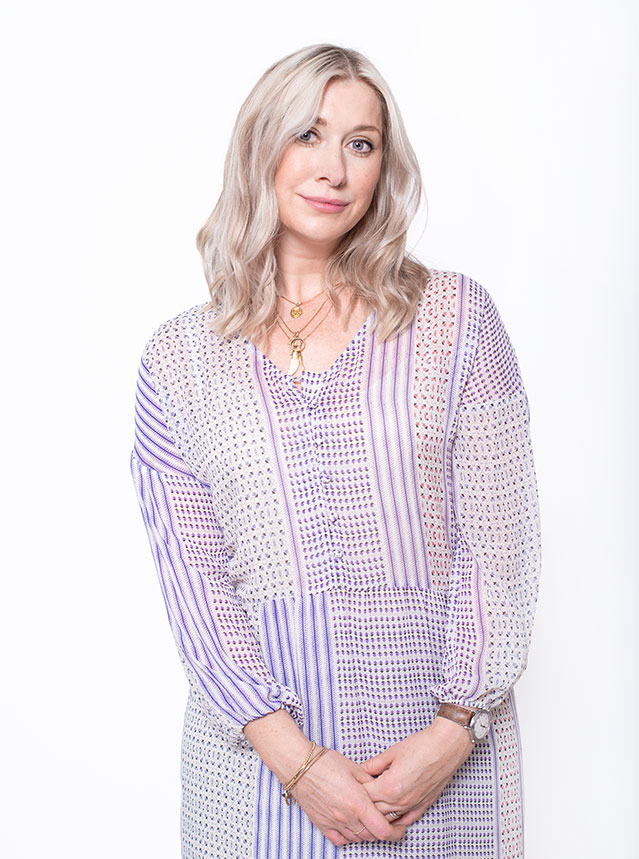Are you’re always attracted to narcissists, players and abusive types? Psychotherapist Emmy Brunner has advice to help stop the cycle
Being stuck in a cycle of bad relationships is heartbreaking, draining, and can undermine everything you know and believe about yourself.
Often by the time we’ve identified destructive patterns in our relationships – incredible damage has been done to our own sense of self.
there is a way out of the cycle of being attracted to bad partners
Many people develop symptoms of anxiety, depression and trauma-responses as a result of the sustained mental and emotional onslaught that characterises a bad relationship.
The good news is there is a way out of the cycle of being attracted to bad partners – one that is completely under your control.
With the right attention and focus on yourself, you can find more stable, loving and reciprocal relationships.
What is a bad relationship?
A positive relationship is one that nurtures us and meets our needs. A ‘bad’ relationship is something toxic, one where our needs are not being met.
Any relationship can have its challenges but it’s time to stop and reflect on how nurturing your relationship is when it exceeds a certain level of stress and begins to leave you in a progressive state of anxiety.
A ‘bad’ relationship is something toxic
No loving environment should leave you constantly walking on eggshells; cause you to consistently alter your behaviour; betray your core beliefs, or to isolate yourself from your support systems.
Why are you continually drawn to bad people?
The behaviour you observed when you were first learning about relationships is likely to show up time and again in the way you approach romantic relationships as an adult.
Negative relationship patterns (and related trauma) usually originate from early childhood and are often reflective of the relationship you had with – or witnessed between – your primary caregivers.
If one parent was emotionally unavailable – you’re more likely to be attracted to an emotionally unavailable partner; if your other parent was excessively demanding, you are more likely to seek out partners that display the same qualities.
More than 15 years of helping people to address some of the most complex mental health issues has taught me that the ‘why’ is at the core of breaking many bad cycles – including the habit of choosing bad partners.
I believe the cause of as much as 90 per cent of damaging behaviour stems from past trauma, a lot of which can be ‘covert’: a family breakdown, moving house, or the loss of a meaningful relationship can all leave us with core beliefs about ourselves that we take into adulthood, and into our relationships.
Whatever the cause, the most important thing is you’ve recognised the pattern of choosing bad partners, and you’re here, ready to make a change. Here’s how.
#1 Get to know yourself and identify the core beliefs about yourself that may be holding you back
When I was working to heal myself after a series of bad relationships, I found it useful to look the core beliefs that I had held about myself and how these beliefs were impacting my choices.
the most important thing is you’ve recognised the pattern of choosing bad partners
I came to realise that my through my own early experiences, I had developed some pretty negative and destructive views of not only myself, but also about relationships. I’d taken these belief systems into adulthood and then ‘sought out’ experiences and people to reinforce my beliefs.
This insight allowed me to ‘wake up’ and I began to nurture a more compassionate perspective of my experiences and noticed where I was limiting myself with this negative belief system.
Find out more about examining your life scripts.
#2 Identify your boundaries and practice asserting them today
When you’ve worked on knowing yourself, and identifying the unhelpful core beliefs, it becomes easier to start identifying your boundaries – the limits at which you feel comfortable, safe and respected within yourself and in your relationships.
In asserting your boundaries you are letting others know the standard of behaviour you require from them, while ensuring you hold clear, comfortable and safe space for yourself.
#3 Enrich your other relationships, including the one you have with yourself
Strengthening existing relationships can have untold benefits, not least in providing you with a strong support network, and a safe place to practice establishing your boundaries.
Oftentimes, our choices in relationships are dictated by a desire to find something we feel we are lacking, which is why we’re so often willing to overlook incident after incident of bad behaviour from a partner.
In finding love and compassion for yourself, and in building deeper intimacy with those in our lives who know us best – we can go forward into positive romantic interactions which are there to nourish us, rather than fill a need.
#4 Avoid fantasy and focus on reality: stop making excuses for people
Do you live in romantic fantasy land – daydreaming about your future with a person you’ve just met?
Do you pin your hopes on someone’s potential, choosing to ignore fundamental signs they are demonstrating the opposite of the qualities that are important to you?
You’re not alone.
You owe it to yourself, your mental health and your future happy relationship to recognise when you’re willfully ignoring a comment or behaviour that you intuitively feel is wrong.
Notice when you are providing excuses for someone who repeatedly crosses your boundaries, or makes promises they don’t deliver, and practice observing the role you have in allowing this behaviour so you can avoid it in future.
We can all allow limiting beliefs and behaviours to define us, but by taking the time to identify early wounds, it is possible to break the cycle of choosing partners who are bad for us, and find the love we want and deserve.
How we treat ourselves is a communication to the rest of the world about what we feel we deserve and respect. The work starts with building an intimate and loving relationship with ourselves.
Emmy Brunner – Women’s Psychotherapist and Founder of the Recover Clinic UK
Emmy Brunner is a London/Brighton based ‘unexpected’ clinical psychotherapist who wears red lipstick and is unapologetic in going against society’s mould of what a typical ‘psychotherapist’ should look and sound like.
Emmy, a mental health sufferer herself, has channelled her trauma for good – realising it’s made her who she is, with a successful career and personal life as a result. She is a seasoned speaker and media commentator.
Instagram: @emmybrunnerofficial
Twitter: @emmybrunner
Relevant Healthista content:
7 ways to fall back in love from the world’s best-selling relationship expert
Love advice to my younger self
Is there a right time to fall in love? Yes, according to the science of chronobiology
7 tantric sex tips to improve your love life
Healthista content you may also like:
9 healthy diet myths making you fat
How to run – a guide for people who hate running
The new saggy skin fix that knocked 10 years off this woman’s face
21 gluten-free eating hacks this food-loving coeliac swears by
Like this article? Sign up to our newsletter to get more articles like this delivered straight to your inbox.

























































